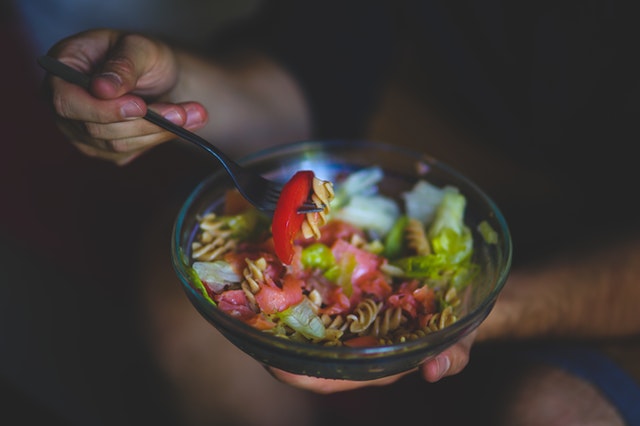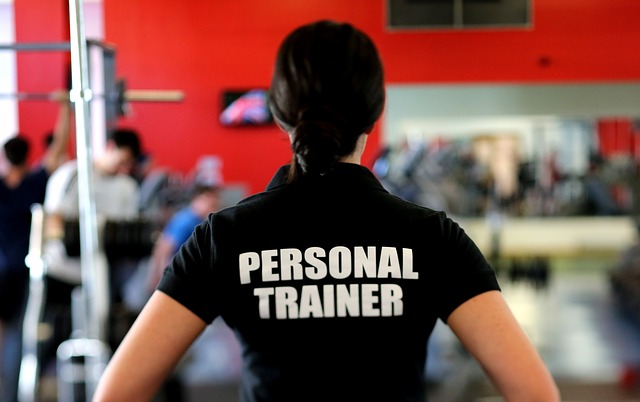Many times, you experience the strongest food cravings at your emotional weakest point. Many people return to food as a means of comfort. They do this consciously or unconsciously especially when they are being faced with a difficult situation, stress or boredom.
Weight loss efforts can be sabotaged by emotional eating, which leads to eating too much of high calories, sugary and fat foods. However, there is a way out! If you are addicted to emotional eating, there are steps you can take to regain control of your eating habits and be back on track.

A lot of people turn to food as a way of stress relief, comfort or reward. An emotional eater may feel powerless over his or her food cravings since this is what he or she will be thinking about when the urge to eat hits. This situation leaves a person with the feeling of guilt.
WHAT CAN YOU DO?
- Know the difference that exists between physical and emotional hunger.
- Try to identify what triggers your emotions which result in overeating.
- Try alternative means of managing stress, anxiety, loneliness and boredom.
- Accept your feelings, including unpleasant ones.
- Understand how to pause prior to yielding into a food craving.
- Find out how mindfulness can help control emotional eating.
RELATIONSHIP BETWEEN EMOTION, FOOD AND WEIGHT LOSS
To start with, we try to define emotional eating. It is a type of eating which people indulge in to suppress or sooth their negative emotions like boredom, stress, anger, loneliness, fear and sadness. Many factors, most especially hassles of daily lives can trigger negative emotions, resulting in emotional eating and frustrate your weight loss efforts. Some of these are:
- Relationship conflicts
- Stress at work
- Tiredness or weakness
- Financial challenges
- Health problems
- Stuffing emotions
- Boredom and feeling emptiness
- Childhood habits
- Social influence
It is true that some people eat less amidst strong emotions; however, emotional distress may turn an individual to binge eating by making him to quickly consume whatever he sees even without enjoying it.
In some cases, you can be carried away with emotional eating to the extent that you automatically reach for a treat whenever you are in a negative emotion such as anger or stress without thinking of what you are doing.
Emotional hunger cannot be filled with food. Though eating may seem good at the moment, however, the feelings that trigger the eating are still there. This leads to guilt because of unnecessary calories you consume.
In addition, food distracts. For instance, a person who is worried about an upcoming event or angry over a conflict may resort to eating as a means of comfort rather deal with the situation.
Emotion at times can drive you towards overeating and when such emotion returns, you are left with burden of set-back guilt about your weight loss goals; you feel unhappy about the situation and overeat again. This unhealthy cycle if left uncontrolled will result in negative consequence and the inability to achieve the designed weight loss goals.
EMOTIONAL HUNGER VS. PHYSICAL HUNGER
Emotional hunger is so strong to the extent that people usually mistake it for physical hunger. However, this article will highlight the differences that exist between them.
- While emotional hunger comes on suddenly and make you feel overwhelming and urgent, physical hunger comes on more gradually and the demand for food does not require instant satisfaction.
- Emotional hunger craves junk foods which provide instant rush while physical hunger makes you sound good with healthy food like vegetables.
- Emotional eating results in mindless and binge eating while physical hunger gives you awareness and concentration on what you are doing.
- Emotional satisfaction does not leave you satisfied when you are full as it keeps you eating more and more until you are uncontrollably stuffed, however, physical hunger ensures you are satisfied wham your stomach is full.
- Emotional hunger results in guilt, regret and shame since you re aware that you are eating is not for nutritional purpose while physical hunger is free from guilt since the body is given what it needs.
TIPS TO OVERCOME EMOTIONAL EATING
Negative emotions can trigger emotional eating; however, below are certain tips which can be adopted to control food cravings:
-
Food record
It is important to keep a food diary. This record will enable you to determine what you consume, the quantity, the time, your feelings when eating and how hungry you are. At the end, you will be able to observe the relationship that exists between your emotion and food.
-
Managing your stress
Look for ways to control or tame your stress. A stress management technique like medication, yoga or deep breathing will go a long way to assist you to control emotional eating.
-
Check the state of your hunger
The state of your hunger is very crucial. You need to ascertain if your hunger is physical or emotional. For instance, there is every likelihood that you are not hungry if you do not observe a rumbling stomach after eating few hours ago, hence, give cravings a time to pass.
-
Seek help
Poor support network may make you yield to emotional eating. You should join a support group or depend on family and friends for support.
-
Manage boredom
It is a bad habit to resort to snacking when you are not hungry. A solution to this is to distract yourself and take control of the situation by walking, watching a movie, playing with your pet, reading a book, call a friend or surf the internet.
-
Don’t yield to temptation
Resist comfort foods at home. Control your anger and do not use food as means to control your emotions like anger.
-
Do not starve yourself
Depriving yourself from food because of weight loss may result in increasing your food cravings in response to emotions. You should consume healthy foods satisfactorily, give yourself occasional treat and eat the varieties of food to curb your cravings.
-
Consume healthy snacks
There are times when the urge to eat between meals may set in. in this case, select snacks which has a low fat, low calorie value. Examples are fresh fruits, low fat vegetables, unbuttered popcorn or a very low calorie form of your favorite food and see if they satisfy your cravings.

-
Learn from experience
You might possibly have engaged in emotional eating in the past, the result of which is making you unhappy. All you need to do is to forgive yourself and have a fresh start. Learning from such experience today will make you plan for its prevention in the future. Concentrate on the positive changes you are making along this line and encourage yourself to make more adjustment that will enhance better health.
WHEN DO YOU CONSIDER PROFESSIONAL HELP?
Having tried all the above listed self-help emotional control eating tips and you still cannot control emotional eating; it’s time to consider therapy by consulting a mental health professional. With therapy, you will understand the reason behind your emotional eating as well as learning coping skills.

Eating disorder which is related to professional eating can also be discovered in you with the help of therapy.